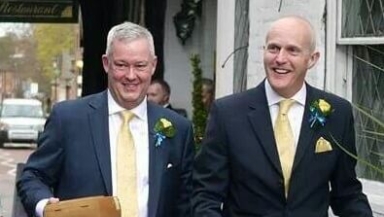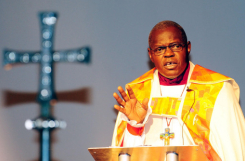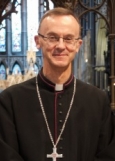
An Anglican priest who was barred from a job as a hospital chaplain because he is in a same-sex marriage begins his discrimination case against the Church at an employment tribunal today.
Canon Jeremy Pemberton was the first Church of England cleric to have a gay wedding when he married his partner Laurence Cunnington in a civil ceremony in April last year.
In June, then acting Bishop of Southwell and Nottingham, Rt Rev Richard Inwood, withdrew Pemberton's permission to officiate as a priest in the diocese, saying that gay marriage went against the teachings of the Church.
Pemberton was then refused a licence he needed in order to take up a new chaplaincy post with Sherwood NHS and the job offer was consequently withdrawn. He has, however, remained a hospital chaplain in Lincolnshire.
Bishop Inwood said he made the decision "In light of the pastoral guidance, and for reasons of consistency", referring to the guidance issued by the House of Bishops in February last year, shortly before the law on same-sex marriage came into force.
This guidance says that for clergy "Getting married to someone of the same sex would... clearly be at variance with the teaching of the Church of England. The declarations made by clergy and the canonical requirements as to their manner of life do have real significance and need to be honoured as a matter of integrity."
When the tribunal was announced in September last year, Pemberton said in a statement: "I am deeply saddened that I have had to take this step against church authorities. However, I feel I have been left with little choice, having found myself being punished and discriminated against – simply for exercising my right to marry."
Pemberton filed the discrimination claim against Bishop Inwood and the Archbishop of York John Sentamu under the Equality Act 2010. The tribunal is taking place at the Nottingham Justice Centre.















